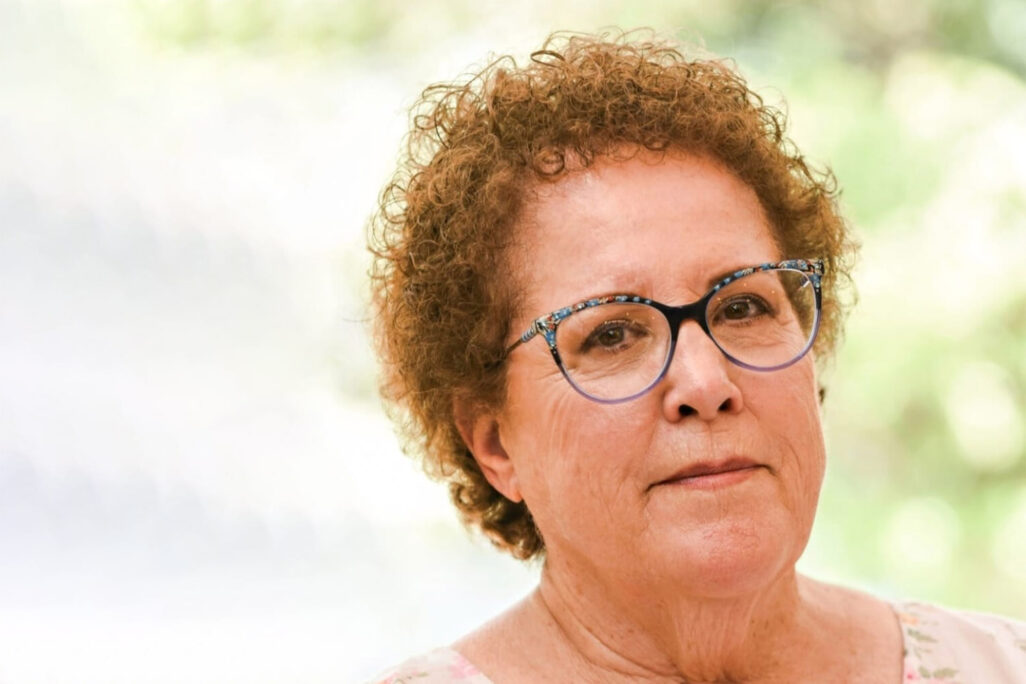
"The hardest feeling is the sense of betrayal," says Batia Holin, 70 years old from Kibbutz Kfar Aza, who survived the massacre carried out by Hamas terrorists in her home. "After Operation Protective Edge in 2014, we sat down with the army and said that a standby squad composed of non-combat soldiers is insufficient protection for the communities on the border with Gaza. That would be neglect, on their behalf and on ours. They decided that every community adjacent to the border fence would have an IDF platoon that would jump in as soon as something happened. But they were all murdered at the entrance to the kibbutz. They should have been more prepared. They didn't listen to us and trusted a concrete wall rather than real protection. They weren't on top of it. A terrible betrayal."
Since being rescued from the inferno, Holin has been staying with her family in a hotel at Kibbutz Shefayim along with the remaining survivors from Kfar Aza. "What goes on here is unbelievable. People help us with everything. We came here with only the clothes on our backs. Since we've been here, we've been surrounded by immense love. It's very beautiful."
Holin can't manage to shake off the nightmare that she woke up to on a Saturday morning two weeks ago. "The first night here [at the hotel] I collapsed. I slept like a rock after 48 hours without real rest. The second night I didn’t sleep. I cried all night. During the day I can’t cry because my children and grandchildren are here."
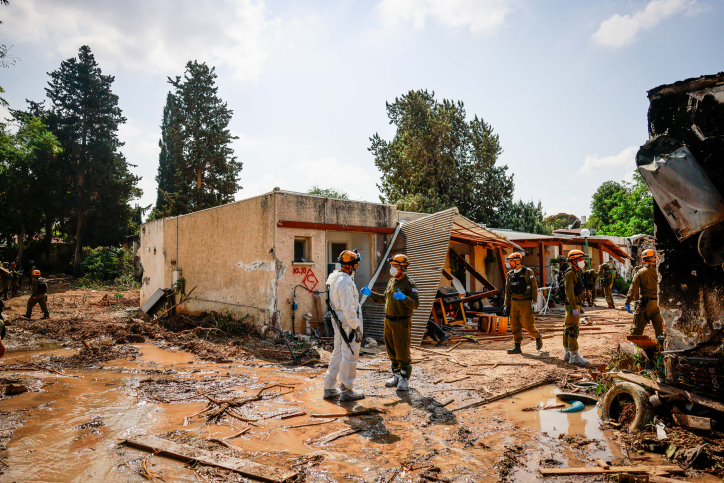
At 6:30 on the morning of October 7, Holin woke up to the sound of the first rockets being fired towards Tel Aviv. According to Holin, life experience and their proximity to the perimeter fence have taught residents of Kfar Aza to recognize where missiles are aimed according to the intensity of the launch. "The first round sounded like a jet plane, so I knew it was headed for Tel Aviv. I usually don't run to the bomb shelter, because those rockets pass over us. This time, the intensity was so great, that I realized that I had to go into the shelter.
"My partner Nahum and I ran towards the bomb shelter. On the way I passed by the kitchen window and saw on the path outside our house three figures dressed in black with white bands around their heads. Nahum said it was an emergency squad, but they didn't look like that to me. We heard that they were starting to speak in Arabic and many more men showed up. We bolted to the shelter and locked ourselves in. We turned on the TV and saw terrorists entering Sderot, who were dressed exactly like the ones standing outside the window, right at the entrance to my house. If they had stood at a different angle, they would have seen me, and it would have ended differently. Why didn't they come in? Why did they skip over us? They probably weren't organized yet. It seems that it came together in the moment."
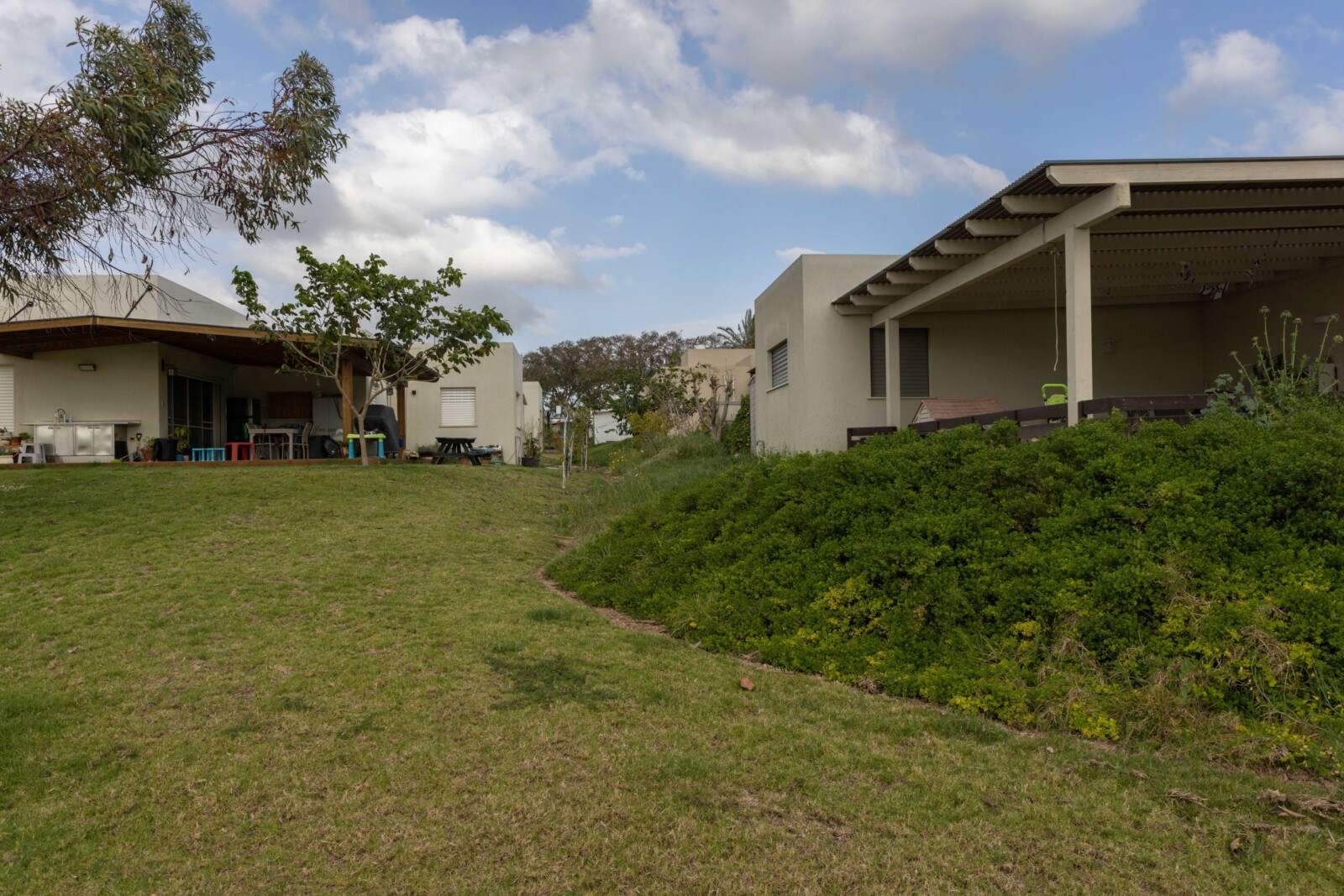
What did you know at this point?
"We heard more and more shots, booms, explosions. We no longer knew if it was Iron Dome or Qassam rockets. We didn't know who or how many people had invaded. We knew nothing. Nothing." They tried to gather information through various WhatsApp groups. Instructions soon arrived: lock the bomb shelter, lift the handle and hold on. A heavy feeling of loneliness and abandonment began to creep into the fear. "Messages began to arrive: 'Come save us! There are terrorists! Where is the army?' There was no response. Nothing. We are alone in this story. We didn't know that at this time soldiers were trying to reach the kibbutz and were slaughtered at the gate. We didn't know that our standby squad had all disappeared. We only started hearing about the wounded."
"We Felt Like Sitting Ducks"
Being a well-known figure in the area, Holin sent a message to journalist Tamir Steinman. "I asked him to tell me what was going on. We felt like sitting ducks with no one to turn to. I saw him raise the call on television. It wasn’t until the afternoon that we could hear that there was a firefight with someone returning fire against the terrorists, and we realized that the army was fighting them. By this time, many homes had already been destroyed."
Did you manage to keep in touch with your children through all this?
"We were in contact with my son from the beginning. He fought hard. We were very worried about him. His friends from all kinds of places called for him. At 12:20 PM we lost contact with my daughter, and we realized that there were wounded people near her house. She lives in a new neighborhood on the side of the kibbutz close to the border fence. I only knew that she was alone with two small children. Her husband was in the hospital recovering from an accident. Reports of injuries were flooding in. We didn't know what happened to her and the children until we met on Sunday at noon."
Just before the connection was cut off, her daughter Rotem informed her about the intrusion of terrorists into the house. "I started writing in the groups that my daughter is alone with two children at home. I was very worried. They are too small, and if God forbid something happens to her, they won't know what to do. No one came to help.
"There was horrible shooting. Rapid-fire everywhere, the throwing of grenades. Our house is a simple kibbutz house, which means it's like a cardboard house, except for the bomb shelter room. On normal days it's another room in the house. We usually don't stay in it that long. It doesn’t have running water, it’s not specially equipped. Just a sofa, TV, and a phone charger. We sat there for more than 24 hours. We didn't eat, we didn't drink, we didn't go to the bathroom."
What kept you going?
"I don't know. I wanted so badly to get to my daughter, to be with the children. But I knew I wouldn't be able to move five meters from the house; they would kill me. There was no choice. We sat and waited."
Holin is a very resourceful woman. Since 2018, she has managed a Facebook page with thousands of followers where she documents, with photos and maps, the fires caused by incendiary balloons launched from Gaza and any other unusual activity on the border fence in the Western Negev. "To this day, the army uses my maps. There were 40 days of fires and it was not reported. I even went to testify at the Human Rights Commission in Geneva. In the last two months, I kept writing that we are on the verge of a catastrophe. I was crying out for them to see it. There were attacks on the fence. It’s absurd."
Her resourcefulness was also revealed from the bomb shelter. "I couldn't sit and do nothing. Every time there was a shockwave from an explosion nearby, I received a notification from the location app for our new car, as if the car was moving. It's a new car with a camera, which you can also connect to through the app. I decided to try to watch through it, and discovered that I could see what was happening outside, from inside the shelter.
"I started following what was happening. At 5:00 PM I saw three armed terrorists coming towards the house of our neighbors across the street. I called one of the army men who were in the kibbutz and explained to him what was happening. I sent him a picture from the car's camera so he could see, and marked on the map where the house was. Yesterday I saw the neighbors here at the hotel. They said that it’s thanks to me that they’re still here."
You saved their lives.
"The terrorists started shooting and threw grenades into their house. Thanks to my guidance, the army arrived and killed them before they could break into the house."
"We Went Down into the Ditch in the Field and Started Crawling"
In the midst of the battle, the Holin couple sat and waited for rescue. "We were told that the army would soon come to rescue us. On the other hand, they warned us not to be tricked, because the terrorists might identify themselves as soldiers, so we must not open the doors. If someone knocks on the door – do not answer. If they identify themselves as the army, start asking questions that only an Israeli can answer."
In the middle of the night, Holin heard a terrible shot ring out, and heavy smoke crept into the shelter. Immediately after that, loud knocks were heard on the door. "We didn't answer. Maybe they said something and we didn't hear. The door of the house was kicked open and I heard shouts: 'Army! Army! Anybody home?' I asked who they were, and they said: 'We’re the Givati Brigade. Second-hand.' That was the password we knew. We opened the door and saw a group of soldiers. They told us to take one or two things and they quickly took us out of the house."
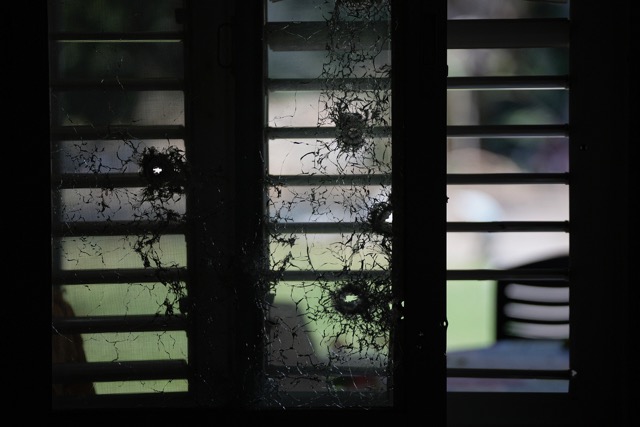
Soon after a shootout erupted around them and the soldiers ordered Holin and her husband to return to the shelter. "We were surrounded by terrorists. I told them: 'You are not going to leave us like this in this unsafe house.' They went to fight the terrorists, came back after about an hour and a half, and took us out as we were. We didn't manage to take anything."
The escape under fire reminded Holin of nighttime field training in the army. "It was early in the morning, it was dark. They took us through the yards of the houses towards the garbage cans and the field. We went down to a ditch in the field and started crawling towards the gas station at the entrance to the kibbutz. There we joined parents with babies, small children, and the elderly. We crawled through the ditch surrounded by bodies. Along the way I passed the corpse of one of my friends."
Military forces were waiting for the survivors at the gas station and ordered them to evacuate by bus. Holin announced that she would not leave without her children and grandchildren. "There was no one to talk to. They wanted to get as many people out of harm's way as possible, and we for our part claimed that two grown people could last longer than a mother with two small children. It was terrible. I went from commander to commander and begged them to go save my family."
Rescue came, once again, from an unexpected place. "Suddenly a reserve commander comes to me and to my surprise he says: I'm going to get Rotem. I asked how he knew I was her mother, and it turns out he was a good friend of hers from the regional high school, and recognized me because we're very similar. He said he was going to rescue her.
At 12:30 pm, after 32 hours of being locked up with the children in the bomb-shelter, Rotem was reunited with her parents. "They arrived just in time. There was a shootout inside of her house. They killed the terrorists, brought in a military jeep and rescued them under fire."
"If My Son-in-Law Had Been There, They Wouldn't Have Survived"
Holin discovered after the fact what her daughter went through during the long hours when their communication was cut off. Terrorists who took over her house managed to break through the door of the bomb shelter. "They shot the handle, and luckily she moved in time and only got a scratch on the arm. The bullet lodged in the closet and not in her stomach. Luckily her partner was in the hospital because of a car accident. If he had been there, they wouldn't have survived. When they saw that she was with two small children, they said: 'We are Muslims, we will not harm you.' One of the terrorists sat on a chair in the bomb shelter, with her and the children. The others walked around the house, ate all of the children's candies, and a lot of good food that was waiting in the refrigerator for Saturday night’s holiday dinner. They destroyed the house.
"They went around her house, stood at the entrance to the shelter and started talking to each other in Arabic. Rotem’s son said to her: 'Mom, now are they discussing how to apologize?' The bomb shelter normally serves as the children’s room. He has a lamp there that makes beautiful silhouettes that he really likes. He asked: 'If we give them my special lamp, will they leave us and not hurt us?'"
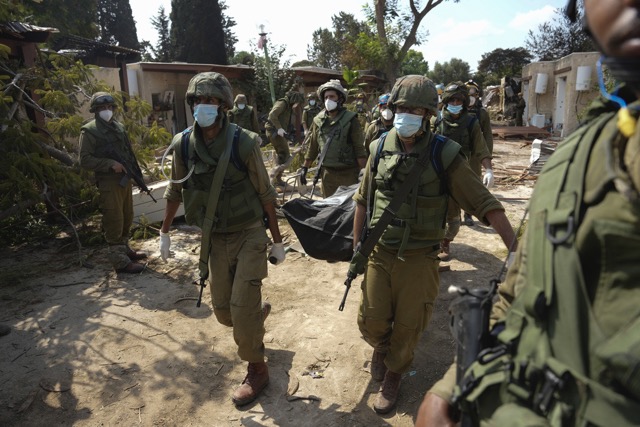
"I admire Rotem for her ability to remain so level-headed. That’s what saved her, and will probably keep her children sane through all this. In the last few days, they met with a child psychologist who suggested drawing what happened. Rotem’s son described what happened and she drew. His story was precise in its nuances. He explained exactly how to draw the shelter, the door of the shelter and the handle. He said: 'Draw my mother in front, me and my sister behind her.' It's amazing how he described everything he recorded in his mind with such calmness."
Holin's son Itamar held on with great difficulty. "We were afraid for him," she says, "I begged the soldiers at the gas station to go look for him and rescue him." Her third son spent his military service playing in the IDF orchestra, but he also found himself defending the settlement. "When he finished his army service, they sent him to do reserve duty as a combat soldier in a standby squad. They gave him a weapon and said 'fight.'"
"What Idiot Would Want to Live in Kfar Aza Now?"
The Kfar Aza community was known to be strong and well-connected.
"It was. We were a strong community. Now there is no community. There are pieces. There are people who love each other very much. They hug all the time. They take care of each other. I can't say that there is a community."
For 10 years, Holin managed the Kfar Aza’s emergency response team. "We did an exemplary job during Operation Cast Lead [in 2008-09], Operation Pillar of Defense [in 2012] and Operation Protective Edge [in 2014]. We were an amazing community. During Protective Edge there was a terrible war, but we came out of it the most strengthened community in the world. We were able to uplift the community. A huge success. We offered incentives to attract new residents from the younger generation, we built strong communities.
"Now all of our leadership has been murdered. The person who was supposed to lead the emergency response team was murdered that morning with her partner. The standby squad is gone. Officials are gone. That's why there was such a mess, because suddenly there was no one to manage anything. Even now there isn't really anyone. Everyone picks up their pieces. The community director is with her husband in the hospital and is unavailable. The business manager lost part of his family. Entire families have disappeared." Now, she says, they are starting to try to bring the people together, and the community is somehow trying to get up and find its way.
Will you return to Kfar Aza?
"If my children don't return, I won't return. There’s still time before we face these questions. I grew up on the stories of the founders of Kfar Aza, and I myself built part of the ethos of resilience in Kfar Aza. My friends always joked about me that whenever something happens, I never leave the kibbutz. You always stay to continue to work. My husband was recovering from surgery during Operation Protective Edge, and I had to evacuate him from Kfar Aza to friends in Tel Aviv. I returned to the kibbutz to manage things, while my three children were in the reserves. When we built the new neighborhood that Rotem lives in, we said: we won."
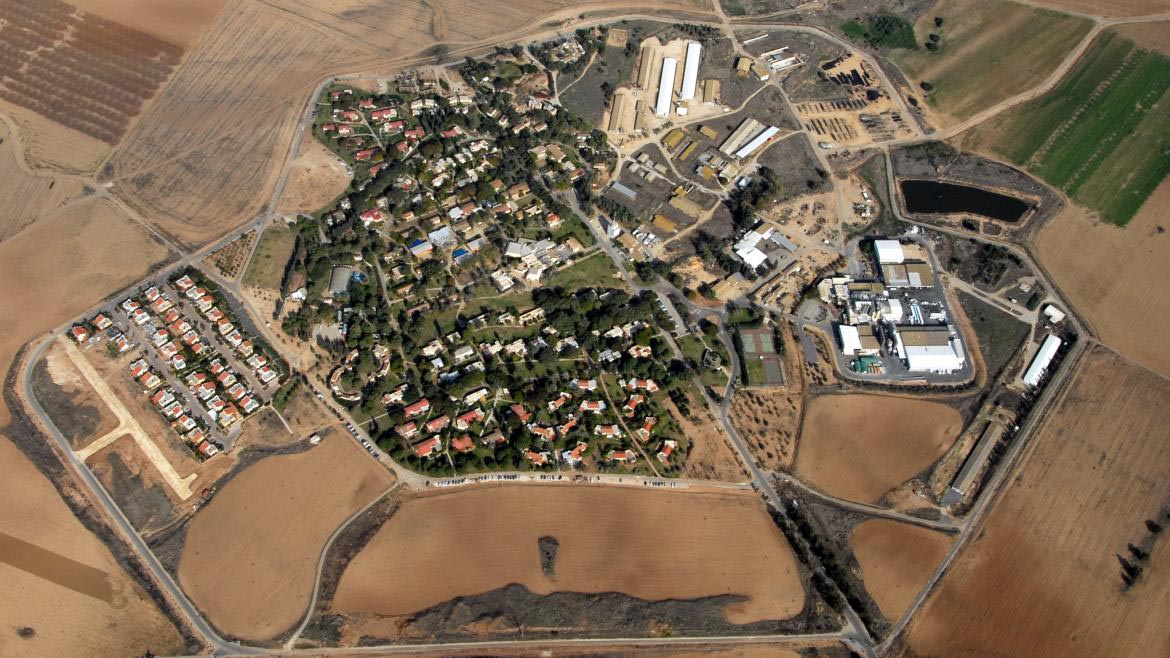
From the new neighborhood where 15 young families lived, only Holin’s daughter Rotem remains. "Now she says to me: 'Do you think I can come back to this house, and know that my friends are no longer here? That I have no one to meet on the sidewalk? How can I tell my children that the friends they played with are gone? What can I tell them?' The neighbor across the street and his daughter were murdered. His wife and two sons are missing, probably kidnapped. The neighbor to the right was murdered with his wife and two children. The neighbors on the other side were murdered. In another house, two children remained alive without their parents. How can she continue to live in that house, in that neighborhood? How?
"I don't have much hope right now. I'm not sure that the Kfar Aza community will rise from the dust. My daughter manages the demographic growth of Kfar Aza. She had a three-year waiting list [for new residents]. Tons of old members of the community who wanted to return, as well as new people who wanted to join the kibbutz. Many of those who were in their candidacy year [for full kibbutz membership] were killed. I don't think those who survived would want to be accepted. Many of the houses are burnt to the ground, destroyed, uninhabitable. Who would want to come and live in Kfar Aza now? What idiot would want to live there? It's terrible. After what’s happened, nobody will come, no matter what incentives they offer. There's no chance."
According to Holin, it is not yet clear what they will return to. "Our trauma is not over yet. Half of our community is missing. We know about certain dead, missing, and abducted, but there are many more that we don’t know what happened to them. Yesterday morning there was another battle with terrorists in Kfar Aza. Yesterday I saw through the car's camera an army squadron standing on the grass in front of our house, and soldiers on the roofs."
The uncertainty, she says, is very difficult. "We don't know how long we will be here. Two months? Three? What’s going to happen? Even if we decide to return to Kfar Aza, in the coming year there is nowhere to return to physically. What do we do? Financially, none of us can start over from the beginning. My daughter built a house on the kibbutz. It’s new. She’s still paying a mortgage on it. What can she do? Nachum and I are 70 years old. We gave our whole lives, and we built our community knowing that we would grow old there. Right now we live moment to moment. My children have experienced such a tragedy, and I can't help them."
What do people around you understand?
"I'm sure everyone's heart is with us, but I don't expect them to truly understand. People don't understand why we chose to live there. But what can they do? It's not in their hands. Maybe next time they can vote for someone else, but it's not clear who. The current administration will go, and then who will lead? Those who are still somehow worthy should decide to take the lead. They must prepare themselves to get dirty in the field of politics."
Has anyone from the government spoken to you?
"No one called. The president's wife was here, but no one from the government. Do you think anyone from the government would dare to come here? They haven't dared to come to us for years. Who will talk to us? Ben Gvir? Netanyahu? He’s afraid of us. He’s never visited us. I don't think we are of interest to them."
This article was translated from Hebrew by Etz Greenfeld and Benji Sharp.






